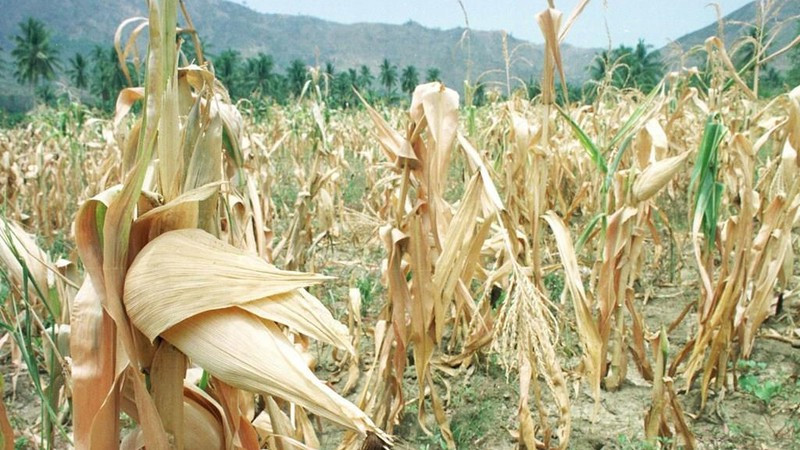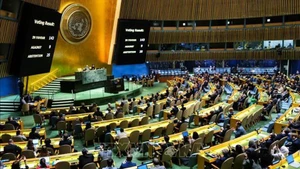The effects of El Nino are becoming increasingly apparent. 'We are in full-blown El Nino weather in several parts of the world and it is going to intensify towards the end of the year,' said Chris Hyde, a meteorologist at US-based Maxar Technologies, a climate data analytics platform.
El Nino is a warming of Pacific waters which typically results in drier conditions over Asia and excessive rains in parts of North and South America. Experts warn that El Nino in the second half of 2023 will affect the supply of agricultural products on a large scale.
As one of the regions severely covered by the "black shadow of El Nino", Asia saw a sharp decline in cereal production due to drought. Over the past month, parts of eastern Indonesia and much of Thailand have recorded record-low rainfall, only 50-70% of the average. Thailand, the world's second-largest rice exporter, has asked farmers to reduce the number of rice crops to save water.
In India, the world's top grain exporter, the driest August on record also hit food production. Worryingly, many experts predict that lower rainfall in September will continue to threaten crops in Asia's food granaries.
Meanwhile, for the first time in four years, the wheat production forecast of Australia, the world's second-largest wheat exporter, was adjusted downward due to a lack of rain in some key farming areas.
Besides extreme weather, transportation disruptions also put pressure on the global food system. The US and Turkey have mediated the Black Sea Grain Initiative to clear the route to bring food from Ukraine and Russia, the world's two leading grain exporters, to the global market.
However, in mid-July, Russia announced that it would stop participating because part of the agreement related to this country had not been implemented.
Moscow affirmed that it will immediately resume implementation if the remaining parties fully comply with their commitments. However, up to now, the parties have not been able to remove "the bottleneck", to restore the important food export route through the Black Sea.
This agreement is considered a "lifesaver" for global food security, so many experts emphasised that the stalling of the Black Sea Grain Initiative is a strong blow to the world food market.
In the context of an unstable global food market, due to unstable supply and many countries controlling exports for reserve purposes, the risk of a new wave of trade protectionism is increasingly present.
After India announced a ban on exporting non-basmati white rice at the end of July, the United Arab Emirates (UAE) and Russia made similar moves. Most recently, India continues to impose an export tax of 20% on parboiled rice and 40% on onions, to ensure supply for the domestic market.
Food price shocks can increase inflation in poor countries, where food accounts for 30% of total household spending, double the level in developed countries.
Pakistan has also just passed a ban on sugar exports to stabilize prices in the domestic market.
According to the Myanmar Rice Federation, the country plans to temporarily limit rice exports.
Continuous storms in recent times have shaken the world food system, causing prices to skyrocket. The Food and Agriculture Organisation of the United Nations (FAO) announced that after two years of remaining at a low level, the global food price index increased in July. Rice prices in some countries even hit their highest level in 15 years.
Experts worry that a food price shock could increase inflation in poor countries, where food accounts for 30% of total household spending, double the level in developed countries. Laura Sanchez, Morgan Stanley’s Head of Sustainability Equity Research in the US, said that El Nino could peak between November 2023 and February 2024, but the impact on inflation Food will last longer, especially in emerging markets.
UN Secretary-General Antonio Guterres warned that hunger has also increased and is now back at 2005 levels. If the pressure on the global food system is not relieved soon, the Sustainable Development Goal of ending hunger by 2030 will be missed.
















